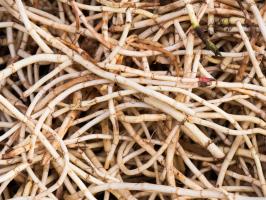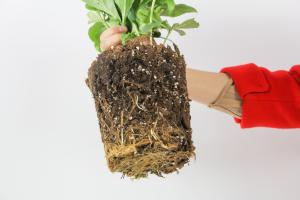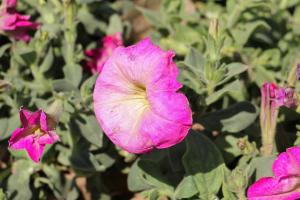How to Feed Your Pot Plants
Having pot plants in your home can bring life and beauty to any room. However, to ensure that they thrive, knowing how to properly feed them is crucial. Here are some tips on how to feed your pot plants:
Choose the Right Fertilizer
When it comes to choosing the right fertilizer, there are two main types to consider: liquid or granular. Liquid fertilizers are quick acting and can be absorbed by the plant almost instantly. However, they need to be applied more frequently. Granular fertilizers, on the other hand, release nutrients slowly over time and require less frequent applications.
Another factor to consider when choosing a fertilizer is the NPK ratio. NPK stands for nitrogen, phosphorus, and potassium, which are the three main nutrients required by plants. The ratio of these nutrients in a fertilizer should be chosen depending on the type of plant you have.
Feed Your Plants with Care
When feeding your pot plants, it is important to do so with care. Overfeeding your plants can lead to fertilizer burn, which can damage or even kill your plant. It is best to follow the instructions on the fertilizer packaging carefully and avoid doubling the dose or feeding your plants too frequently.
When applying the fertilizer, make sure to water your plants first to avoid root burn. You can also mix the fertilizer with water before applying it, as this will help to distribute the nutrients evenly. Be careful not to pour the fertilizer directly onto the leaves, as this can cause damage.
Consider the Plant's Growing Season
The growing season for your pot plants will determine when and how often you should feed them. Generally, plants require more frequent feeding during their growth period, and less during their dormant period.
Seasonal changes can also affect your plant's feeding requirements. For example, plants may require more frequent watering and feeding during the summer months, when the temperature is higher and the air is dryer.
Monitor Your Plants' Health
Monitoring your plant's health is crucial in order to determine if they are getting the nutrients they need. Signs that your plant may be lacking nutrients include yellowing leaves, slower growth, and poor flowering.
On the other hand, if you notice that your plant is growing rapidly but the stems are weak or the leaves are small, this may indicate that you are overfeeding it. In this case, reduce the frequency or amount of fertilizer that you are using.
In Conclusion
Properly feeding your pot plants is essential for their growth and overall health. By choosing the right fertilizer, feeding your plants with care, considering the plant's growing season, and monitoring their health, you can ensure that your pot plants thrive and bring beauty to your home.

 how many times do yo...
how many times do yo... how many planted tre...
how many planted tre... how many pine trees ...
how many pine trees ... how many pecan trees...
how many pecan trees... how many plants comp...
how many plants comp... how many plants can ...
how many plants can ... how many plants and ...
how many plants and ... how many pepper plan...
how many pepper plan...

































